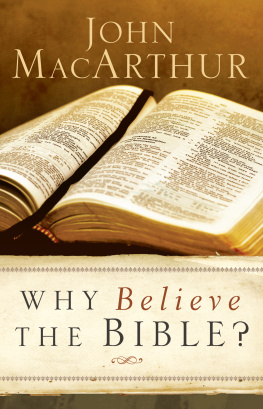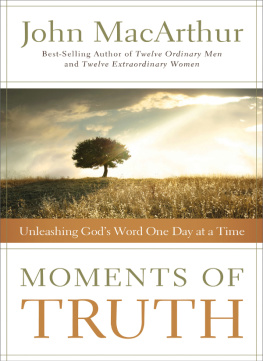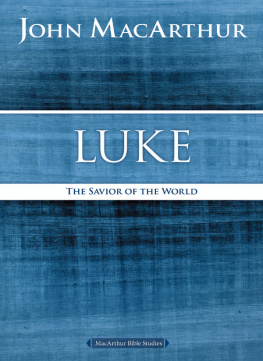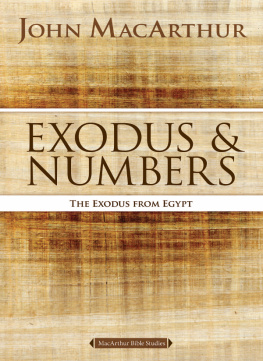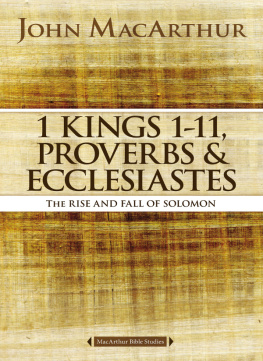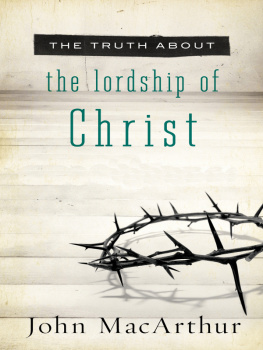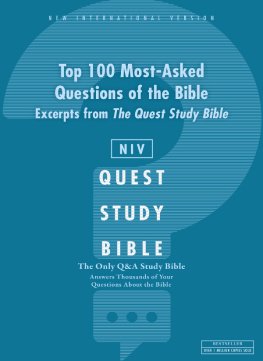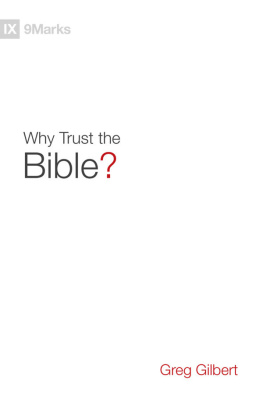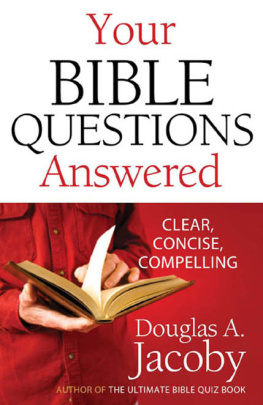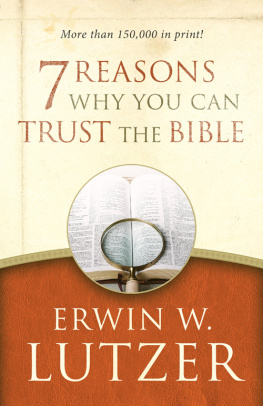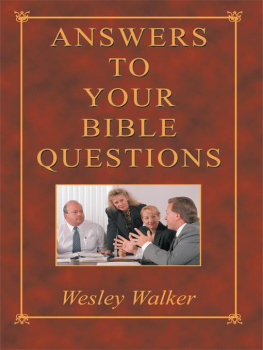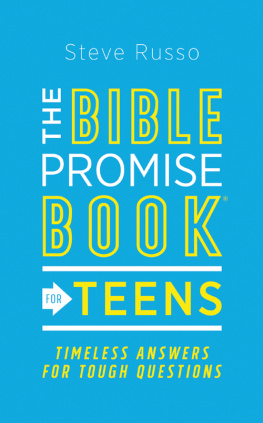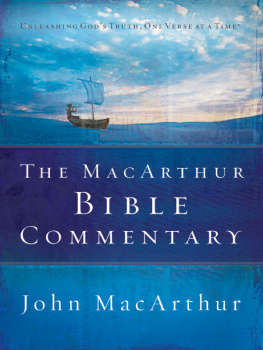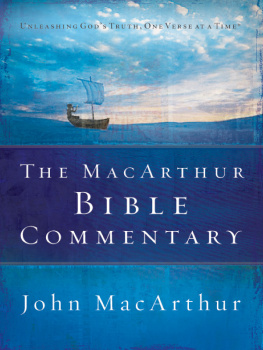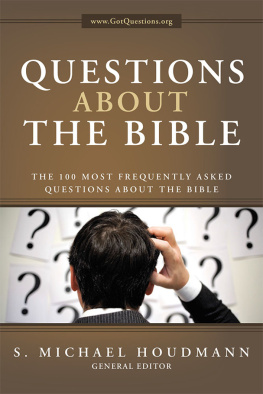
1980 by G/L Publications
Published by Baker Books
a division of Baker Publishing Group
P.O. Box 6287, Grand Rapids, MI 49516-6287
www.bakerbooks.com
Baker Books edition published 2014
ISBN 978-1-4412-2412-5
Previously published in 1980 and 2007 by Regal Books
Ebook edition originally created 2012
Ebook corrections 09.25.2014
All rights reserved. No part of this publication may be reproduced, stored in a retrieval system, or transmitted in any form or by any meansfor example, electronic, photocopy, recordingwithout the prior written permission of the publisher. The only exception is brief quotations in printed reviews.
Library of Congress Cataloging-in-Publication Data is on file at the Library of Congress, Washington, DC.
All Scripture quotations, unless otherwise indicated, are taken from the Holy Bible, New International Version. Copyright 1973, 1978, 1984 by International Bible Society. Used by permission of Zondervan Publishing House. All rights reserved.
Other versions used are:
KJVKing James Version. Authorized King James Version. NASBScripture taken from the New American Standard Bible, 1960, 1962, 1963, 1968, 1971, 1972, 1973, 1975, 1977, 1995 by The Lockman Foundation. Used by permission. NKJVScripture taken from the New King James Version. Copyright 1979, 1980, 1982 by Thomas Nelson, Inc. Used by permission. All rights reserved.
Dedicated to Bob Vernon in gratitude for his faithful prayers and generous friendship.

PART I

C AN W E R EALLY B ELIEVE THE B IBLE ?
As Christians, most of us would like to say that we of course believe the Bible. But we are surrounded by a worldly secular system in which all truth is relative and in which there are no absolutes. The Bible is not openly attacked as much as it is subtly undermined. It is accepted as one more way to look at the world, but its divine authority is simply passed over, ignored, flippantly popularized or dismissed with a tolerant smile. Today more than ever, people are asking the following questions:
- What Does Gods Word Mean to Us? Is it authoritative, infallible, inerrant and effective in our life? How can we tell?
- Who Can Prove Gods Word Is True? What about the evidence in changed lives, the Bibles uncanny ability to keep matching up with scientific discovery, archaeological finds, fulfilled prophecy? What is the only final proof of the truth of Scripture?
- How Did God Inspire His Word? Did God use biblical writers like robots and dictate the 66 books to them? Are the writers inspired, or the writings? Or both? What does Scripture mean by inspired?
- What Did Jesus Think of Gods Word? Can we believe in Christs authority but not the authority and truthfulness of Scripture? Did Jesus support the Scripture of His day as truthful history?
- Can You Add to Gods Word? Who decided which books would go in the Bible and which ones would not? What happens when individuals or groups try to add to the Scriptures?
In these first five chapters, we will grapple with these very old questions that are still extremely relevant today.
C HAPTER 1

WHAT DOES GODS WORD MEAN TO US?

How important is the Bible to peoples lives?
There are several ways to answer that question. Some say, The Bible? Its just another book. Some wise sayings here and there, mixed with a lot of genealogies, myths and crazy visions.
A second group says something like this: Of course I know the Bible is importantat least my pastor thinks so. Hes always quoting it and waving it in the air. But I dont read it too muchcant really understand it too well.
There is still a third group, however, who would align themselves with Sir Walter Scott, a famed British novelist and poet, who was also a committed Christian. On his deathbed, Scott is reported to have said to his secretary, Bring me the Book. His secretary thought of the thousands of books in Scotts library and inquired, Dr. Scott, which book?
The Book, replied Scott. The Biblethe only book for a dying man!
The committed Christian would have to add that the Bible is not just the only book for a dying man, but its the only book for a living man, because it is the Word of God.
In which of the three categories do you fall? Obviously, Group 1 represents the typical response from the secular world. It doesnt know Christ, and it accepts only what seems to fit in with worldly wisdom. For them the Bible has little importance and less authority.
Group 2 includes a lot of church members, and even some Christians. They know the Bible is important and that it should have priority and authority in their lives, but they dont make much personal use of it. They neglect its teachings altogether, or they slip by, seldom opening the Bible for themselves and depend on pastors, teachers or speakers to explain it to them. They make little application of what the Scriptures teach. The Bible remains a mysterious, somewhat confusing rulebook that they are supposed to swallow bravely, like a bitter vitamin every morning before breakfast.
Group 3 sees the Bible much differently. For them the Scriptures are alive, literally popping with exciting truths. This group doesnt live by bread alone, but on every word that comes from the mouth of God (Matt. 4:4).
But perhaps youre thinking that you dont quite fit in any of these three categories. If you are like a lot of Christians I have met, you land somewhere between Group 2 and Group 3. You want the Bible to be more important. You want to submit to its authority, but life sort of crowds in. Everywhere you turn you are enticed or intimidated to forget the teachings of the Scripture.
For example, you turn on a TV talk show and hear a big star make authoritative announcements such as, I think everyone should do his own thing, live his own life and have his own faith. The studio audience bursts into applause and you are left wondering if its really very bright (or even very American) to think that you, a born-again Christian and member of a church, have all the answers between the covers of such an old and seemingly outdated book.
But when we let the worlds value system intimidate us, we forget a basic truth. In a world of relative thinking that has no absolutes, the Bible stands as the absolute authority for the Christian. The Scriptures are the Word of God, not mans opinions, human philosophy, somebodys ideas, not the polling of the best thoughts from the best thinkers. Scripture is Gods Word and that means it has several characteristics and qualities that should make it extremely important in our lives.
GODS WORD IS INFALLIBLE
Some statements of faith published by churches or Christian organizations say, The Bible is Gods Word, the infallible rule of faith and practice. That is a good statement, but I prefer an even stronger one that says, The Bible is Gods
Next page
